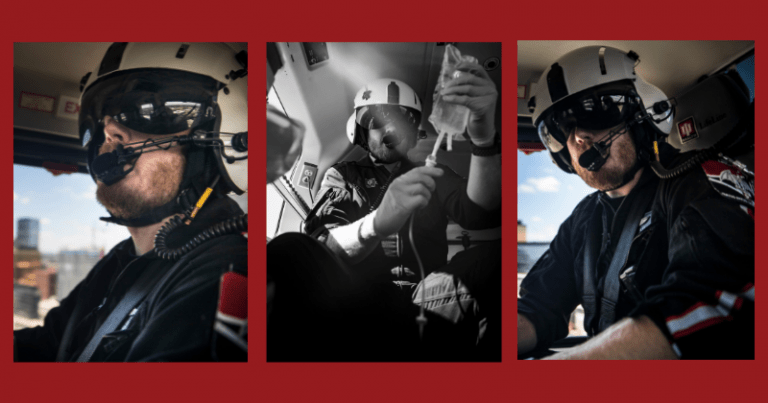Vast. That's how Matt Ramseyer, BSN '11, describes the variety of patients he sees as a critical care transport nurse.
"At any given time, you can land on the side of a highway for a vehicle crash, pick up an intubated pediatric patient from a community hospital or transport a patient with a specialty cardiac device," says Ramseyer. "Sometimes that's all in one shift."
According to the Air & Surface Transport Nurses Association, transport nursing emerged as a specialty during World War II. ASTNA says nurses were trained to care for wounded soldiers during transport on converted cargo planes and the fields of battle.
Since that time, the specialty has evolved to provide care and comfort for civilians in airplanes, ambulances and helicopters.
"People often think that we just load patients into the ambulance or helicopter and move as fast as we can," explains Ramseyer. "While speed is a component of our job, we also have the ability to continue the ICU level care started at a referring hospital.”
While speed is a component of our job, we also have the ability to continue the ICU level care started at a referring hospital.”

Ramseyer says transport nurses may perform invasive procedures such as intubation, run lab work, give blood, or mix and start vasopressors, if needed.
"The critical care doesn't stop just because the patient needs to transfer hospitals."
Requirements for this multi-faceted role include becoming a registered nurse and having three to five years of critical care or emergency experience.
Ramseyer credits IU School of Nursing with laying the foundation from which he built his career. Today, this IUSON alumnus is part of a team of transport nurses making a difference in the lives of their patients.
"Without the rigorous standards they set, I would have had a much larger learning curve preparing to work in critical care transport."


